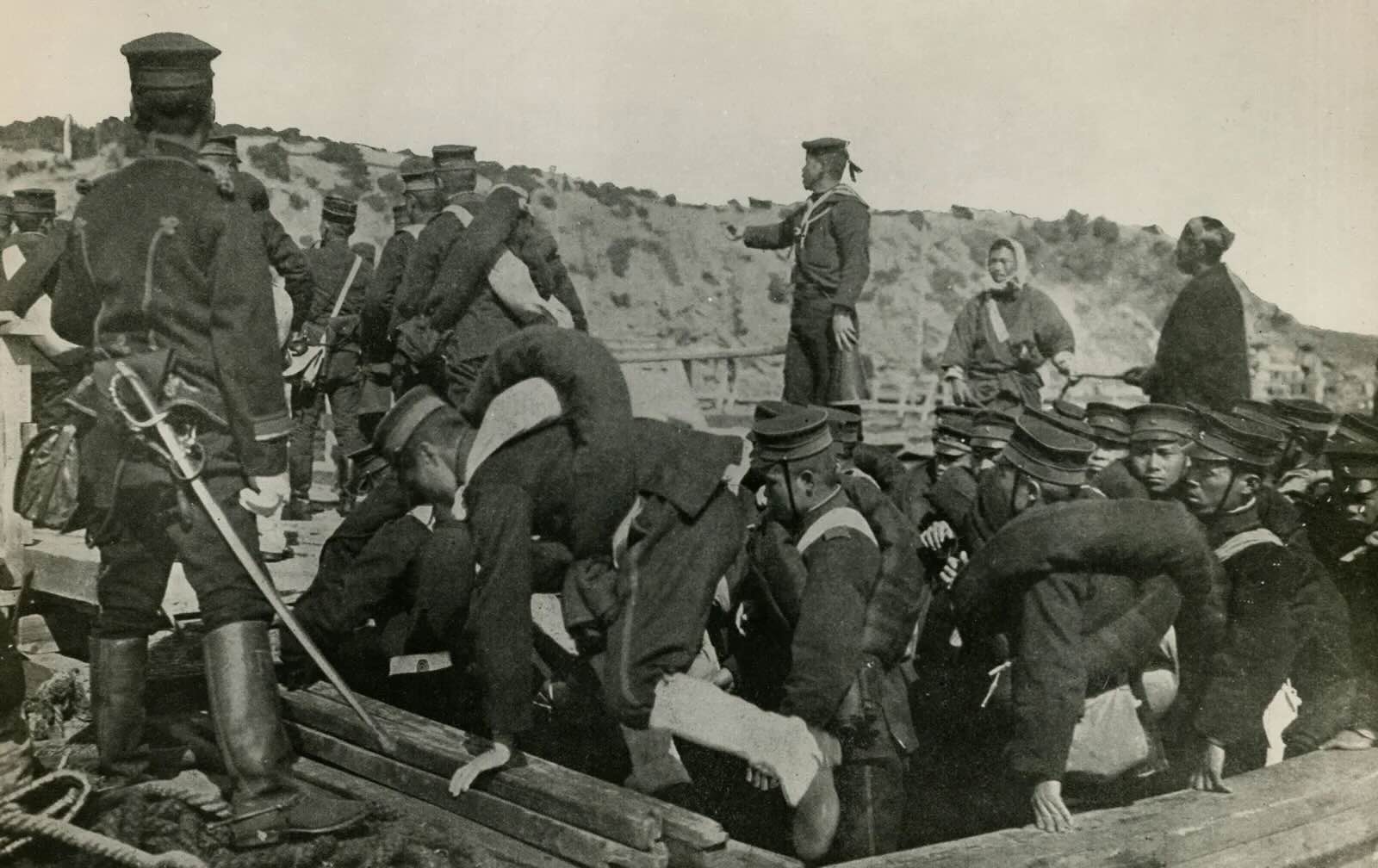
The Russo-Japanese War, fought between 1904 and 1905, marked a significant turning point in world history. This conflict saw Russia and Japan clash over territorial ambitions in East Asia, particularly in Korea and Manchuria. Japan's victory not only stunned the world but also shifted the balance of power in the region. This war showcased the effectiveness of modern military tactics and technology, setting the stage for future conflicts. The Treaty of Portsmouth, mediated by U.S. President Theodore Roosevelt, ended the war and earned him a Nobel Peace Prize. Understanding this war provides insight into early 20th-century geopolitics and the rise of Japan as a major power.
Origins of the Russo-Japanese War
The Russo-Japanese War, fought between 1904 and 1905, was a significant conflict that shaped the early 20th century. It marked the first time an Asian power defeated a European nation in modern warfare.
- The war began over rival imperial ambitions in Manchuria and Korea.
- Russia sought a warm-water port on the Pacific Ocean, leading to tensions with Japan.
- Japan aimed to expand its influence in East Asia, particularly in Korea and Manchuria.
Major Battles and Military Strategies
The conflict saw several key battles that showcased the military strategies and technologies of the time. Both nations employed modern tactics and weaponry, making the war a precursor to World War I.
- The Battle of Port Arthur was the first major land battle, starting with a surprise Japanese attack.
- The Siege of Port Arthur lasted from August 1904 to January 1905, ending in a Japanese victory.
- The Battle of Tsushima was a decisive naval battle where the Japanese fleet destroyed the Russian Baltic Fleet.
- Trench warfare, which later became infamous in World War I, was used extensively during the Siege of Port Arthur.
Technological Innovations
The Russo-Japanese War saw the use of several technological innovations that would later become standard in modern warfare.
- Wireless telegraphy was used for the first time in naval warfare.
- The war saw the first use of machine guns in large-scale combat.
- Armored trains were employed to transport troops and supplies.
Political and Social Impact
The war had profound political and social consequences for both Russia and Japan, as well as for the wider world.
- The defeat led to the Russian Revolution of 1905, which forced Tsar Nicholas II to implement political reforms.
- Japan's victory boosted its status as a major world power.
- The war demonstrated the effectiveness of modern military tactics and technology, influencing future conflicts.
- It also highlighted the weaknesses of the Russian military and bureaucracy.
International Reactions
The global community closely watched the Russo-Japanese War, and it had significant diplomatic repercussions.
- The United States mediated the Treaty of Portsmouth, which ended the war.
- President Theodore Roosevelt won the Nobel Peace Prize for his role in negotiating the treaty.
- European powers were shocked by Japan's victory, leading to a reevaluation of their own military strategies.
Cultural and Media Influence
The war captured the imagination of people around the world and had a lasting impact on culture and media.
- War correspondents from various countries reported extensively on the conflict.
- The war was one of the first to be documented through photography and film.
- It inspired numerous books, articles, and artworks.
Economic Consequences
The economic impact of the war was significant for both nations involved.
- Russia's economy was strained by the cost of the war, contributing to domestic unrest.
- Japan's economy benefited from war reparations and increased international trade.
- The war accelerated industrialization in Japan, particularly in the military sector.
Legacy and Historical Significance
The Russo-Japanese War left a lasting legacy and is considered a turning point in world history.
- It marked the rise of Japan as a major military power.
- The war influenced the strategies and tactics used in World War I.
- It demonstrated the importance of naval power in modern warfare.
- The conflict highlighted the need for military and political reforms in Russia.
Personalities and Leaders
Key figures from both sides played crucial roles in the outcome of the war.
- Admiral Togo Heihachiro led the Japanese navy to victory at the Battle of Tsushima.
- General Alexei Kuropatkin was the Russian commander who faced criticism for his handling of the war.
The Lasting Impact of the Russo-Japanese War
The Russo-Japanese War left a significant mark on history. It was the first time an Asian power defeated a European nation in modern warfare, shifting global power dynamics. This conflict showcased the importance of naval strength and modern military tactics. Japan's victory boosted its national pride and paved the way for its future expansion in Asia. On the other hand, Russia faced internal turmoil, leading to the 1905 Revolution and eventual political changes. The war also influenced other nations, showing that emerging powers could challenge established ones. Understanding these facts helps us grasp the broader implications of this pivotal conflict. The Russo-Japanese War wasn't just a regional skirmish; it was a turning point that reshaped the 20th century.
Was this page helpful?
Our commitment to delivering trustworthy and engaging content is at the heart of what we do. Each fact on our site is contributed by real users like you, bringing a wealth of diverse insights and information. To ensure the highest standards of accuracy and reliability, our dedicated editors meticulously review each submission. This process guarantees that the facts we share are not only fascinating but also credible. Trust in our commitment to quality and authenticity as you explore and learn with us.
